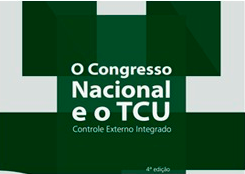Tribunal de Contas da União
Emergency Aid processing has undue inclusion and exclusion of individuals
SUMMARY
-
The Federal Court of Accounts - TCU Brazil followed up for the fourth stage the implementation of the Emergency Aid in response to the Covid-19 crisis and other actions related to social assistance.
-
Among the findings, the TCU found that there are citizens who meet the legal requirements, but are unable to access Emergency Aid, as well as the opposite, people who do not meet the legal requirements, but who receive the assistance.
-
There are 3.3 million people improperly excluded and who are in situations of need. They are black or brown, are between 30 and 44 years old, and live on the outskirts of capitals or in the interior of states, with a literacy rate lower than those included in the benefit.
The Federal Court of Accounts - TCU-Brazil followed up for the fourth stage the implementation of the Emergency Aid in response to the Covid-19 crisis and other actions related to social assistance. The work analyzed the extension of payments with the residual Emergency Aid and detected estimates of undue payments.
The main objective of the Emergency Aid is to guarantee a source of income for a specific target audience, notably in the context of a drastic reduction in the economic activity caused by social distancing measures, which has affected some economic and work sectors. Until August 2020, contracts made with the Social Security Technology and Information Company (Dataprev), the Brazilian bank Caixa, and the Brazilian Post Office (Correios) generated payments of R$ 103 million.
In the current stage, the work evaluated processes of July and August and monitored the findings presented in the previous report, such as payments to claimants not entitled to the benefit, lack of access by the target audience, and transfer of extraordinary resources to states and municipalities. The novelty of this phase is the examination of measures adopted by managers involved, in compliance with the deliberations issued by the TCU, as well as the monitoring of the degree of such implementation.
The follow-up addressed once again the risk of applicants not entitled to the Emergency Aid being unduly contemplated, the so-called error of improper inclusion. This number can add up to 7.3 million people, or 10.8% of the target audience, with resources reaching R$ 29 billion. For the Court, this was due to registration limitations in government databases and the high level of informality in employment and marital relationships, given that some rules for eligibility of the emergency aid are difficult to verify.
Previous determinations of the Court related to undue payments of the Emergency Aid to the military were fulfilled by the government agencies involved, which led to the cancellation of approximately 58 thousand benefits and the return of approximately R$ 28 million.
The TCU also analyzed the fact that 3.3 million individuals in need and who meet legal requirements do not have access to the Emergency Aid. For Minister Bruno Dantas, rapporteur of the case, "the risk of undue exclusion is of equivalent significance to the risk of undue inclusion, since the objective of the policy, which is helping vulnerable individuals, is not achieved ".
As for the improper exclusion, the Court's previous recommendations were not implemented, as there was no identification of the cases of claimants who did not receive a response through the website or the application.
The Court will continue to monitor the level of implementation of the Emergency Aid and to monitor compliance with its deliberations regarding the benefit.






